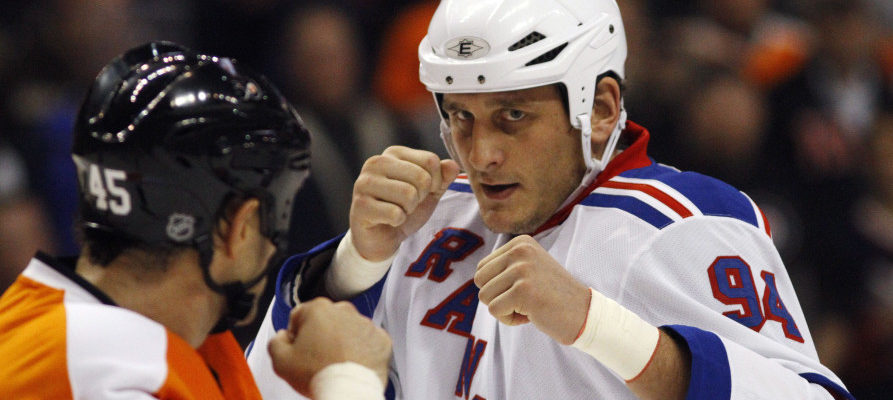For some people it seems like every time they’re asked to explain hockey to someone who isn’t familiar with it they mention how grueling it is and how much skill is needed to play, but almost always there is one more bit that there’s always a focus on — fighting.
But I am in favor of the end of the old hockey culture which resulted in almost every team having an enforcer.
Hockey fans put a spotlight on fighting, praising how integral it is to the sport — even I agree that it should never go away. However, the fact that fighting is mentioned as one of the highlights of the sport seems a bit unrepresentative to me. It’s not like it’s a bloodbath on the ice or something fans are purely waiting for (or at least they shouldn’t be) — it’s a small sideshow to contrast to the extremely high skilled players typically flying up and down the ice.
A lot of fans are worried about fighting being removed from hockey with growing concerns of head trauma or other injuries coming from it. Mike Milbury on NBC Sports just last week reiterated his desire for fighting to be removed from hockey entirely. I am not at all in that same category. I love fighting, but having players on the team purely for the act of fighting is something that is not fair to the players faced with the physical turmoil of that role.
Fighting should be spur of the moment — to settle a score between one guy and another. It should not be an encouragement for an individual player to put himself on the line every game for the team.
That much exposure to consistent head trauma is not worth the benefit it may give the team — at least don’t put all that on one guy.
Fighting spread throughout the lineup is great. A big hit from one side should be met with a defense from the other. Ryan Callahan is a great example of a player that stands up at the correct times, but doesn’t sacrifice himself unnecessarily.
But when players start racking up 10, 15, or even more fights a year it’s a tough burden to carry and one that can be detrimental to a player’s life.
Fighting should not and can never go away in the NHL, but the downfall of the enforcer is welcoming.
Quote from 2014 NY Times documentary on Derek Boogaard:
“What we’re finding is that individuals who have been exposed to repetitive mild traumatic brain injury like athletes that play football or boxers or hockey players down the line — some 8-10 years later they start developing symptoms. Usually behavioral and personality changes, but later on they can evolve in memory loss and cognitive changes and that’s the disease. It’s called chronic traumatic encephalopathy (CTE).” – Dr. Ann McKee Director of Neuropathology
